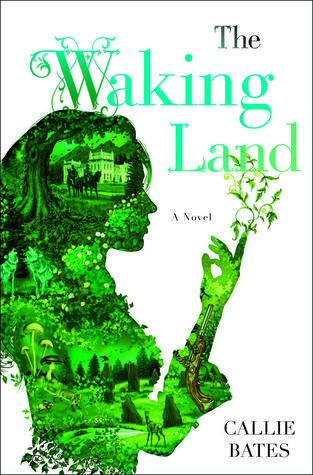Elanna Valtai, stolen from her true family as a child, is raised by the King like a daughter, despite her real father’s status as a traitor to the crown. When the King is murdered, Elanna is accused and forced to run to the home and family that abandoned her as a child. In court, she hid her small magical abilities to make plants grow, but when she steps foot in her homeland, she feels a strange, powerful, and deep connection to the land. With rebellion rising, and Elanna as the symbol, she must find a way to save both her homes.
The Waking Land‘s strength lies in its vivid lush imagery, including flowers blossoming and trees uprooting, stone circles that come alive with dead ancestors when human blood is spilled in them, and traveling by land shifts, in which the path forward is never the same as the path back.
The romance between Elanna and Jahan is cute if lacking depth. I admire that marriage is not a necessary step of their relationship, but they do talk about marriage before they say, I love you. When Elanna and Jahan are finally intimate, the act turns into a plot point as Elanna also “weds the land”. On the one hand, the myth proclaims it is a sacred act that allows Elanna to increase her connection to nature, but the characters around her also treat it lightly, either with disgust or humor, because everyone felt it.
Despite multiple enchanting world-building elements, many elements of the novel fall prey to the tropes of the young adult genre. The heroine’s thoughts and motivations are repetitive. Elanna anguishes over her place in the world internally, but outwardly makes reckless decisions without forethought. Her immediate companions easily sway her thoughts, feelings, and priorities. In fact, the primary motivator of her movement from place to place is being kidnapped, captured, or tricked.
I received a copy of this book from the publisher via NetGalley in exchange for an honest review.
Recommended for fans of YA fantasy who love to read under the canopy of a tree.
“I feel myself wanting to grow toward him, as if I am a flower and his approval is the sun.”
